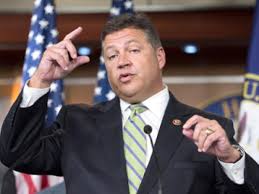
When the Senate passed a more neutral version of the FAA Reauthorization package – deliberately excluding the issue of privatization for the sake of expediency – they had hoped that the toned down bill could pass quickly through the house.
Senator Bill Nelson (D-FL) emphasized that the toned down version of FAA Reauthorization finally passing through the Senate represented a compromise: “…we are close to the vote on the FAA bill…To get to this point has been no small task, especially in this era in which it is so difficult to find consensus and a bipartisan way to pass something,” Nelson said. “In a complicated bill like this, it doesn’t contain everything that everybody wants, but we hope our counterparts in the House are going to take up and pass this bill without delay. We have given them a good bipartisan blueprint to follow and one they ought to pass easily.”
But Shuster’s response at the time was clear: “I appreciate the work of the Senate and Chairman Thune in moving an FAA bill. We will take a look at the completed product, but in the House, we will continue to push forward with the AIRR Act. Transformational air traffic control reform is absolutely necessary to end the unacceptable status quo at the FAA and to ensure the future of America’s aviation system. I look forward to working with the Senate to complete a final bill this Congress.”
While the FAA and everyone in the aviation industry wait to see what the final Reauthorization bill will look like, the battle over the privatization of air traffic control continues to wage. Conservatives in favor of privatization like Robert Poole, writing for the National Review, argue bitterly with conservatives not in favor of privatization like Diana Furchtgott-Roth, also writing at the National Review.
The FAA Managers Association 3 days ago published the result of their meetings with Congress to urge passage of the FAA Reauthorization package before the current package expires in July. Their update did not indicate that a decision was imminent:
No decision has yet been made by House Transportation and Infrastructure Committee (T&I) Chairman Shuster on a pathway forward. Chairman Shuster still wants to explore whether there is a way to gain support from Appropriators and the House Ways and Means Committee for his ATC reform proposals. There is no support for these reforms in the Senate.
In the meantime, the FAA is without a solid funding package on which they could base major decisions. The drone-related pieces of either bill go undecided. More states and local governments decide that they must decide their own regulations in the absence of clear messaging from the federal government. Whether privatization of Air Traffic Control happens or not, the rest of the aviation industry can’t wait indefinitely for a Reauthorization package to go through, clarifying issues that affect everyone in the sky.
Miriam McNabb is the Editor-in-Chief of DRONELIFE and CEO of JobForDrones, a professional drone services marketplace, and a fascinated observer of the emerging drone industry and the regulatory environment for drones. Miriam has penned over 3,000 articles focused on the commercial drone space and is an international speaker and recognized figure in the industry. Miriam has a degree from the University of Chicago and over 20 years of experience in high tech sales and marketing for new technologies.
For drone industry consulting or writing, Email Miriam.
TWITTER:@spaldingbarker
Subscribe to DroneLife here.